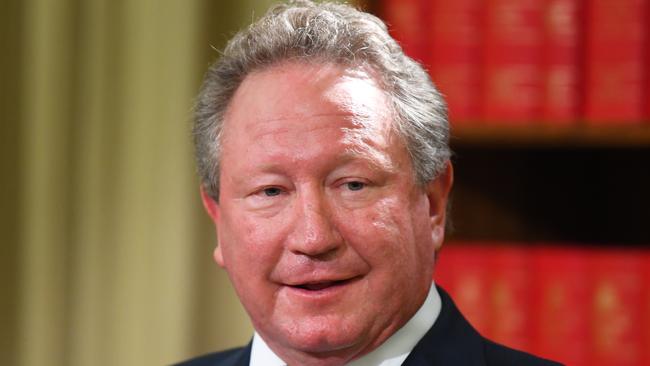Andrew Forrest’s Minderoo Foundation funds $4.5m in plastics research
Andrew Forrest’s Minderoo Foundation is funding the University of Queensland to examine the effects of plastics on human health.

Research into the effect of plastics and plastic chemicals on the human body has received a $4.5 million boost from Andrew and Nicola Forrest’s Minderoo Foundation, which is funding the UQ’s Queensland Alliance for Environmental Health Sciences (QAEHS) to undertake the work.
The hope is that the investigations will help drive global efforts to stop harm to human health.
“For some time now, international researchers have been expressing grave concerns about the toxic impacts of plastics on human health,” said Dr Forrest, a mining magnate who is now a major philanthropic donor. Better known as ‘Twiggy’ he recently completed a PhD in marine ecology.
“Now, with this partnership, we can add the weight of Australian evidence to the world’s awareness,” he said.
Plastic production is forecast to double over the next 20 years and the level of human exposure was increasing. “We are committed to developing expertise in this field to understand the impact of plastics on human health, because it will contribute important evidence to drive the urgent changes in how we make and use plastics,” Dr Forrest said.
UQ QAEHS director, Kevin Thomas, said his team would “develop methods and techniques to analyse these plastics and refine the detection of plastic chemicals, and to gather evidence as to whether they enter the body and if so at what levels”.
“Understanding exposure is one of the key steps in determining potential health risks of plastics and associated chemicals,” Professor Thomas said.
Minderoo Foundation director of plastics and human health, Sarah Dunlop said plastic was “incredibly useful … and designed to be really persistent and strong. And so it gets into the environment. It doesn’t decompose like natural molecules do”.
“It breaks up and fragments into smaller and smaller pieces that we call micro plastics and then into virus-sized nano plastics,” Professor Dunlop said.
Apart from the polymer itself, there were a range of chemical additives that were of concern and chemicals derived from plastics were consistently found in human urine and blood, she said.
“We are exposed from before conception over our lifetime,” Professor Dunlop said. “Unlike the plastic additives, which we know are in us, we don’t have good techniques yet for measuring nanoplastics,” she said. “If you don’t know how to measure them, and you don’t know what the exposure is in humans, you can’t then determine the health effects.”
Even recycling was problematic. “Plastic is still plastic, whether it’s recycled or not,” Professor Dunlop said. “We need to redesign it so it doesn’t have those properties, these toxic additives, and it doesn’t break up into smaller and smaller pieces of itself. The first target is single-use plastic that we use just once and throw away.”
A heartening development was the growing number of non-government organisations concerned about the effect of plastics on human health. In addition there were calls for the United Nations to create a global plastics treaty.




To join the conversation, please log in. Don't have an account? Register
Join the conversation, you are commenting as Logout